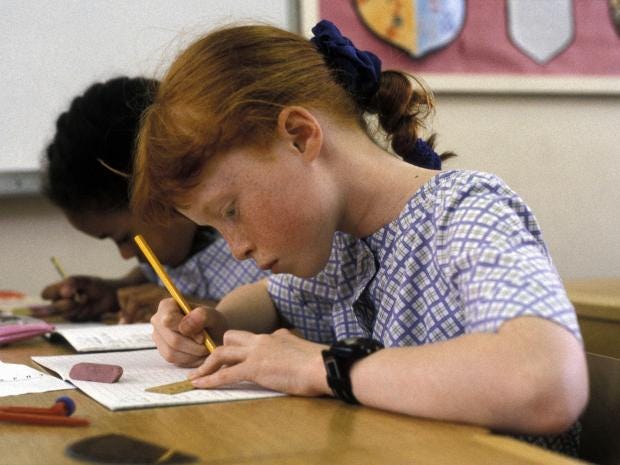
Teachers will call for a ballot on boycotting baseline tests for four-year-olds when they meet for their annual conference next weekend.
New tests from this September will make children in England “among the most tested in Europe”, the National Union of Teachers’ annual conference in Brighton will be told.
The baseline tests are designed to inform teachers about the abilities of pupils starting school. They will also be used to rank primary schools in league tables by showing how much, or how little, children’s performance has improved.
A motion before the conference says: “The formal testing of children at primary school is about school and teacher accountability and has very little to do with the children being tested.”
It adds: “Testing … narrows the curriculum and limits the educational experience for pupils.”
This autumn’s baseline tests are one of three new tests for primary schools. Nicky Morgan, the Secretary of State for Education, has also announced the return of national curriculum tests for seven-year-olds.
These were abandoned under Labour because it was thought that seven was too young an age for children to undergo a formal externally marked test. Last week’s White Paper on the future of education also held out the prospect of times tables tests for pupils aged 11, in their last year of primary schooling.
In addition, children undergo a controversial phonics test at the age of six to check their reading skills. This test has been ridiculed by teachers for including made-up words. There are also the national curriculum tests in reading, writing and mathematics for 11-year-olds.
Next weekend’s conference will hear calls for a formal ballot on boycotting the baseline tests – with union leaders being urged to follow that up with a ballot on boycotting all other primary school tests this year.
Teachers will argue that the testing regime in schools is partly responsible for an “alarming” rise in the number of children and young people suffering from mental health issues.
Any call for a boycott of the baseline tests this autumn is likely to receive overwhelming support at the conference.
However, moves to boycott the rest of the testing regime in primary schools are likely to have to wait until next year as, in particular, the tests for 11-year-olds will only be a month away by the time the vote is taken.
An NUT survey, Exam Factories, concluded that the testing regime had put pressure on schools to drive up students’ exam results, leaving them “not enough time to support children’s social and emotional development”.
Christine Blower, general secretary of the NUT, said: “It frankly beggars belief that Nicky Morgan is not listening to the voice of the profession on the chaos that the Government has caused in the assessment system.
“Baseline testing has been opposed from the outset by great swathes of the early years sector.
“This is not the way to get the best from children.”
However, the Department for Education has argued that its phonics check on six-year-olds has led to 120,000 more children getting on the right track to become fluent readers.
A spokeswoman said: “School assessment is certainly not meant to cause pupils significant stress.
“Schools should encourage all pupils to work hard and attain high grades, but we do not recommend they devote excessive preparation time for these tests and certainly not at the expense of a child’s wellbeing.”
“Parents rightly expect us to ensure that their children are leaving primary school having mastered literacy and numeracy and this is why we have tests at Key Stage Two [for 11-year-olds].”
“We are always willing to respond to the views of teaching unions and are in regular discussion with them.
“It is disappointing that the NUT are taking this approach which would disrupt children’s education rather than working constructively with us as other unions have.”
[Source:- independent]








